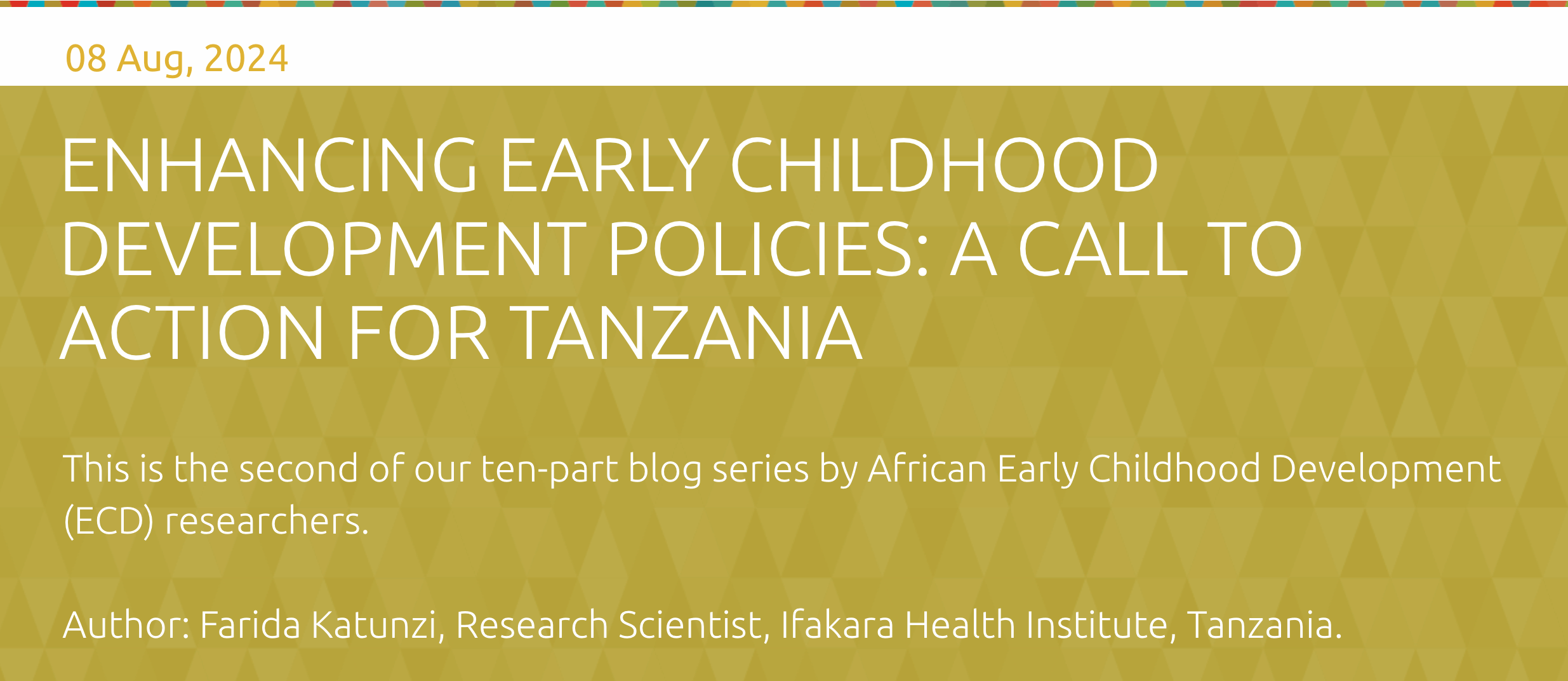
Enhancing Early Childhood Development Policies: A Call to Action for Tanzania

>> Writes Farida Katunzi
In today's global landscape, Early Childhood Development (ECD) has emerged as a crucial cornerstone for building resilient and prosperous societies. Across the world, governments are increasingly recognising the significance of integrating ECD principles into their policy frameworks and guidelines.
Tanzania is no exception, with the implementation of the National Multisectoral Early Childhood Development Program (NM-ECDP). However, despite commendable efforts, substantial gaps persist in how different ministries address ECD in their sector-specific policies, service guidelines, action plans and strategies.
A recent comprehensive study set out to evaluate the alignment of Tanzania's ECD sector-specific policies with the components outlined in the Nurturing Care Framework (NCF). The NCF delineates five essential pillars: good health, adequate nutrition, responsive caregiving, early learning, and security and safety. The study meticulously reviewed a total of 33 national policy documents. These documents were scrutinised to assess the extent to which they incorporated the principles of the NCF.
- Prioritisation of child survival and good health: Tanzania's policies demonstrate a commendable emphasis on child survival and promoting good health. They advocate for crucial services such as maternal and child healthcare, immunisation, and the creation of conducive environments for healthy development. Notably, they ensure access to free primary healthcare for children under 5 years old, exemplifying a dedicated effort towards safeguarding the wellbeing of Tanzania's youngest citizens.
- Acknowledgment of nutrition's vital role: There is a notable recognition of the pivotal role of adequate nutrition for maternal women and children. Policies underscore the importance of promoting proper feeding practices and breastfeeding to combat malnutrition and address micronutrient deficiencies.
- Early learning requires greater emphasis: While there are policies advocating for compulsory free education and the establishment of community day care centres and primary schools, early learning opportunities for children under 2 years old remain insufficiently addressed.
- Gap in responsive caregiving: Despite the acknowledgment of parents and guardians as key stakeholders in child development, policies fall short in adequately addressing the concept of parenting. Caregivers are often viewed more as caretakers rather than active participants in nurturing care.
- Need for mental health and disability screening: A significant gap exists in addressing mental health issues and screening for disabilities in current ECD-related policies, highlighting a critical area for improvement.
Challenges and stakeholder perspectives
Stakeholders, including government officials, have voiced concerns regarding the absence of a comprehensive policy encompassing all aspects of nurturing care. There is a growing consensus on the necessity of developing such a policy or enhancing existing ones.
“We don't have a policy that encompasses all five of these components together, but they are found in each sector, so we can say they are scattered. For example, when it comes to health matters, we will look at the health policy, while safety and security are handled by another ministry. However, I also think it is the right time to have a policy that incorporates all five of these components. Although we need to ask ourselves in which ministry such a policy would exist because one ministry cannot handle all five components. Additionally, who will be the focal person? I believe productive discussions are necessary, and it is important to work on these matters” (Civil society organisation representative, 01.07.2023).
However, challenges in inter-ministerial coordination and uncertainty regarding policy oversight remain significant hurdles.
“The importance of having such a policy exists, but it must clearly state who is responsible for managing and making decisions because that is where there is a problem, we also need strong coordination” (Sub-national government official, 23.06.2023).
“Policies are formulated by the ministries, meaning that the parties involved will be present at the ministry level. At the lower level, maybe councillors and local leaders. I have never been in any policy discussion” (Sub-national government official, 21.06.2023).
Despite the obstacles, stakeholders are steadfast in their commitment to advocating for policies that comprehensively cover all five nurturing care components and cater to vulnerable groups. Improved coordination among ministries and heightened awareness about ECD services are essential. Furthermore, ensuring representation from regions and districts in policy discussions will facilitate localised implementation and efficacy.
Tanzania stands at a pivotal juncture in its journey towards enhancing ECD outcomes. Addressing the identified gaps in ECD policies is imperative for laying a robust foundation for the holistic development of young children. By surmounting challenges and fostering collaborative efforts among stakeholders, Tanzania can chart a course towards a brighter future for its children and generations to come.
Farida Katunzi is a researcher at Ifakara Health Institute. This article was first published on the Education Sub Saharan Africa website.
GRAPHIC: Snip from the Education Sub Saharan Africa website.
